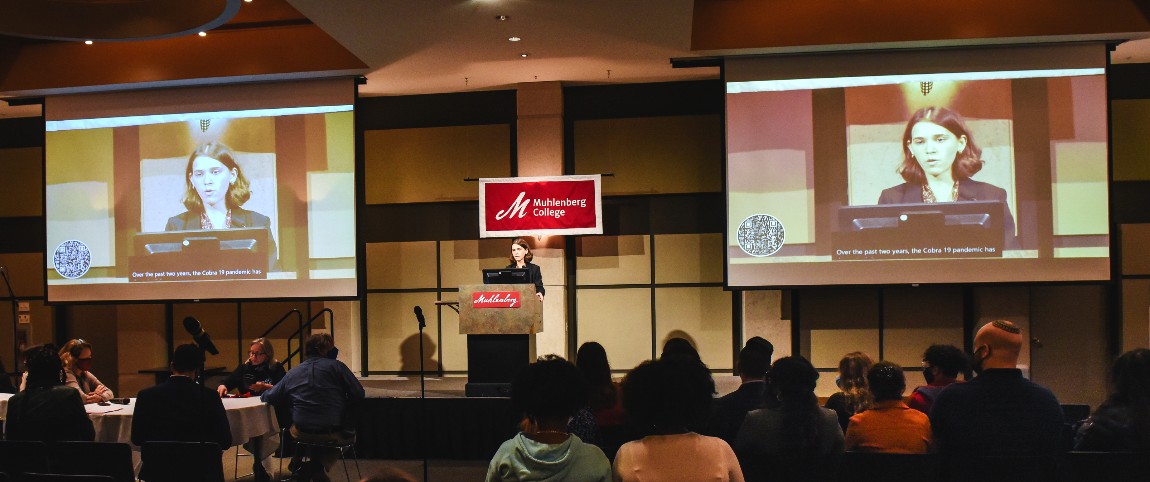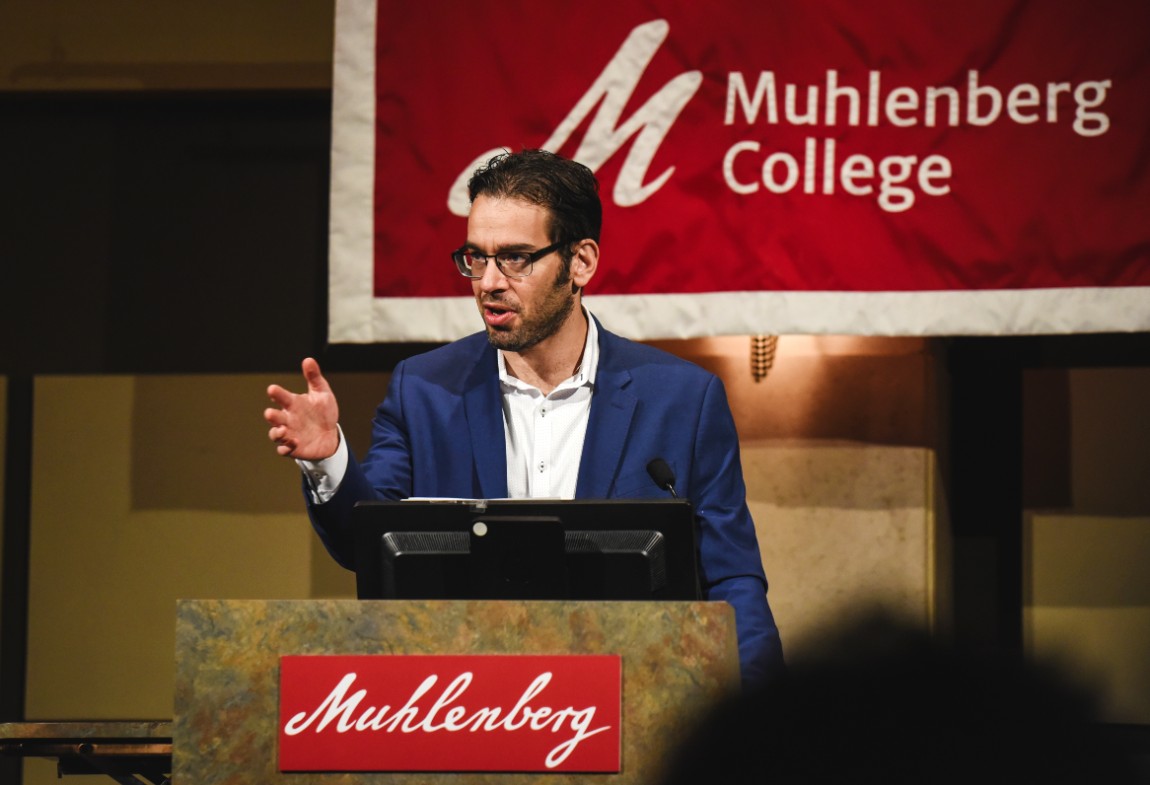Campus Hunger: Advocating for Change
A symposium at Muhlenberg this fall highlighted the often invisible issue of hunger on college campuses and the state and national legislation that can help.By: Kristine Yahna Todaro Wednesday, December 15, 2021 00:46 PM
 Natalie David '22, president of the College's Challah for Hunger chapter, welcomes participants to the Hunger Free Campus Symposium. Photo credit: Kristi Morris
Natalie David '22, president of the College's Challah for Hunger chapter, welcomes participants to the Hunger Free Campus Symposium. Photo credit: Kristi MorrisCharitable donations and food pantries are simply not enough. It’s time to create fundamental, sustainable and equitable change through acts of legislation to address food insecurity on college campuses.
This was the message shared by Natalie David '22 when she opened the Hunger Free Campus Symposium at Muhlenberg on October 24.
The College’s Challah for Hunger (CfH) chapter sponsored the program, which took place on campus in Miller Forum, Moyer Hall and via Zoom. CtF is a nonprofit organization with over 70 chapters nationwide with the common goal of addressing food insecurity in higher ed through philanthropy, advocacy and community building.
David, president of Muhlenberg’s CfH chapter and a mentor for CfH nationally, cited a recent Real College survey which found that nearly three out of five college students were experiencing a basic needs insecurity, meaning a lack of access to food, to safe and adequate housing or to healthcare for sustained physical and mental well being. The pandemic has made the situation significantly more dire for many and deepened inequity across racial and class lines.
David, a biology major and Jewish Studies minor, noted that Muhlenberg has taken steps to address these issues on campus with a community food cabinet, the implementation of emergency grants and a dining card swipe donation program. But more needs to be done at the state and federal levels, especially for students whose institutions are unable to offer these types of resources.
“That’s why we're gathered here today,” said David. “Advocating for the Hunger Free Campus Legislation in Pennsylvania will provide colleges with funds to launch some of the very same resources Muhlenberg has initiated. Additionally, we’re advocating for the EATS Act at the federal level which would make the supplemental nutrition assistance or SNAP program accessible for nearly 4 million more students.”
In Pennsylvania, if passed, the Hunger Free Campus Legislation would provide $1 million in funding for anti-hunger initiatives in public institutions. The EATS Act or “Enhance Access To SNAP Act of 2021” treats attendance at a higher education institution the same as work for the purpose of determining eligibility for SNAP.

A lineup of prominent speakers followed David at the podium, including Congresswoman Susan Wild, Pennsylvania State Representative and Muhlenberg alumnus Mike Schlossberg ‘05 (pictured above), CEO of Hunger Free America Joel Berg, Challah for Hunger director Rebecca Bar, and M.U.L.E. Community Cabinet director Krystal Hall '21 (pictured below.) Pennsylvania Senator Bob Casey, First Lady Frances Wolf and Pennsylvania State Representative Malcolm Kenyatta provided video remarks during the symposium.
Muhlenberg CtF board members Anna-Maria Hadadd '25, Melanie Halbert '25, Leia Resnick '23 and Arielle Weinberger '21 helped organize the symposium and introduced each speaker.

Information to find food resources in the Lehigh Valley was shared with all attendees. In addition, participants signed online petition letters to help advance both pieces of legislation. Signatures are still needed: Sign here to encourage representatives in Congress to support the EATS Act and here to ask state legislators to commit to introducing Hunger Free Campus Grant legislation
“One of my goals for the event was to bring different members of the Lehigh Valley community together— philanthropy leaders, college administrators, legislators and students,” says David. “To create change, you have to believe you can. I wanted to empower my peers to create legislative change on issues that directly impact our collective health and well-being. Each student has the capability to create change and there is power in numbers. By building coalitions of educated, passionate individuals, we can help our vision of a more equitable college experience become reality.”
